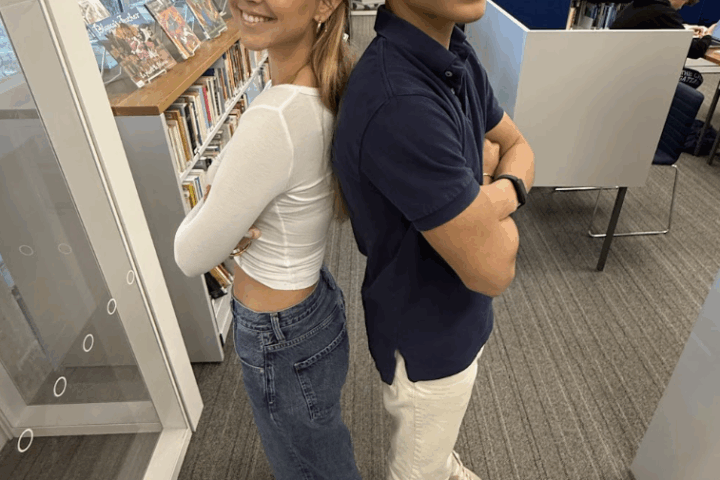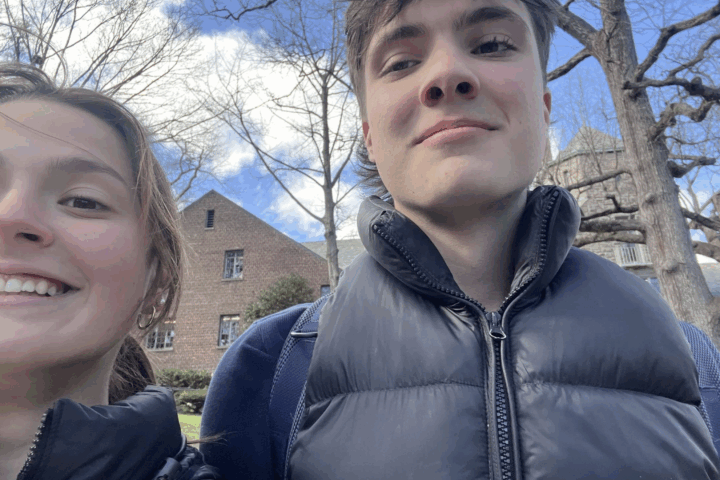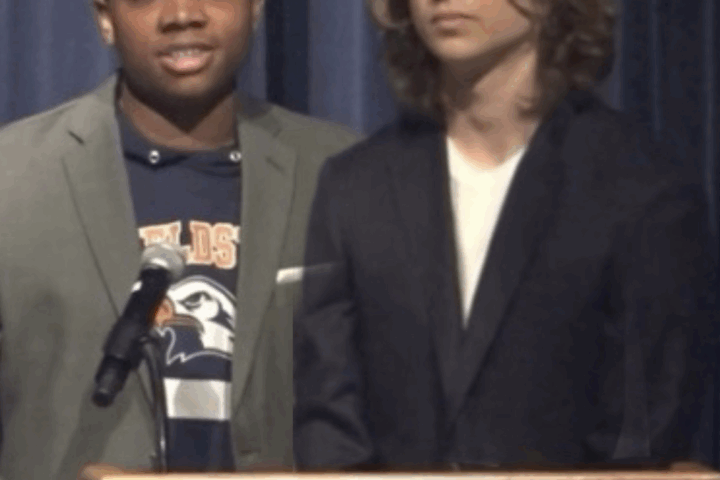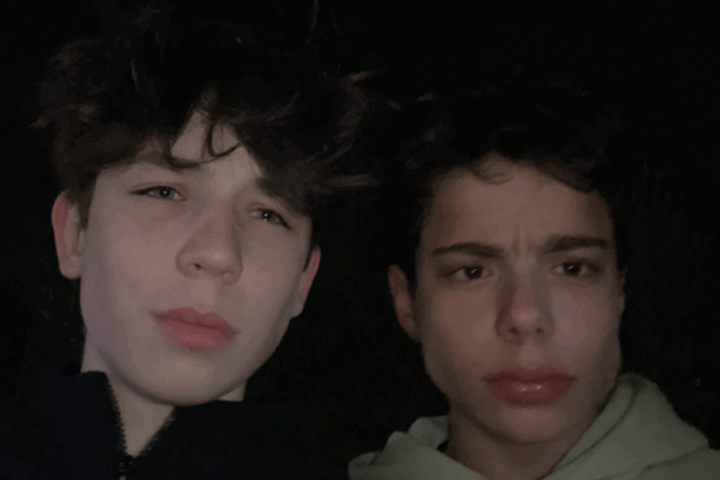Over the course of the 2023-24 academic year, no one wanted to say the wrong thing. Disagreements over the Israel-Hamas war, which brought to a head other divisive issues, left our student body, parent body and some alumni deeply divided, with many claiming to feel unsupported and unheard. The lack of in-class conversation regarding the war, coupled with insufficient guidance on how to talk about it, fostered a sense of uncertainty and fear within the community.
In some ways, there was restraint; people were at their best in endless rounds of negotiation, workshops and roundtables, and were cautious about what they said and how they said it. At other times there was partisanship and recklessness. People acted impulsively, sometimes selfishly. At times, the line between free speech and bad behavior blurred.
In light of this, Fieldston’s administration, consisting of Head of School Joe Algrant, and the principals of the Ethical, Lower, Middle and Upper schools, has made numerous attempts to create and facilitate educational assemblies and workshops regarding the war, seeking to restore civility and trust, and trying to get people to listen rather than just react.
On November 19, 2023, Upper School Principal Stacey Bobo sent an email to Fieldston’s faculty, in the first paragraph, plainly stating, “The students in our community are ready to have conversations about the Israel-Hamas war… The DEI [now known as BSI] team and Upper School Administration are in discussion to schedule programming that will support our engagement in these conversations.”
The following day, Dr. Laura Shaw Frank, the director of the American Jewish Committee’s Jewish education initiatives and communal research and programming, led a school-wide assembly, and youth development professional Morris Ervin led restorative justice sessions for students.
After weeks of discussions with former FSG Co-Presidents Sophie Basner (‘24) and Remy Lipman (‘24), the administration brought in restorative justice leader Jason Craige Harris to work with the affinity group faculty and student leaders toward having more productive cross-cultural dialogue.
Harris continued to work with affinity groups and faculty throughout the year. In February, Cara Raich, a fellow conflict mediator and educator, joined Harris in a school-wide assembly titled “Avoiding Conflict Traps: Skills for Transforming Conflict into Connection.” The pair provided students with concepts and strategies for conflict resolution. Notably, they strayed from specifically discussing the Israel-Hamas War and instead chose to focus on building positive communication habits and having respectful conversations, especially between people with opposing views.
In a recent interview with The Fieldston News, Dr. Bobo explained, “Our biggest problem is that everyone wants to talk about the war, but we don’t know how to talk about it.” The administration needed to find a way to have conversations where all perspectives have a voice, but without harming each other. “You can have a certain viewpoint on this war – it’s complicated – but we need to be mindful of other people in our community,” she added. With Harris and Raich, Bobo and the rest of the administration hoped to start having productive conversations where everyone’s voices could be heard. “Faculty are also building their capacity to have these conversations with care. This work takes time.”
A kind of odd “truce” surfaced and lasted for several months. On the surface, there was calm, but behind the scenes, there was always a flurry of activity, including meetings, phone calls, and email blasts. After this string of affinity group meetings and assemblies seemed to pacify the conflict, a controversy regarding the phrase “From the river to the sea, Palestine will be free” reignited the issue, perhaps inspired by the disorders, encampments and eruptions of antisemitism on college campuses, with many community members deeming it offensive.
Consequently, on May 19, a group of Fieldston families and alumni — most, but not all, of whom are Jewish — wrote a letter to the Head of School Joe Algrant, Upper School Principal Stacey Bobo and the Board of Trustees, complaining about the administration’s failure to condemn the use of the phrase. The letter cited the words of founder Felix Adler, as well as H.R. 6090, a recent resolution in the House of Representatives that classified the chant as antisemitic. With over 850 signatures, including students, faculty, alumni and parents, it stated, “We write now to tell you that, during this Jewish American History and Mental Health Awareness Month, we are not okay.”
The letter made several demands, including hiring a Jewish history expert to oversee the instruction of Jewish history in the curriculum, the creation of a Task Force, made up of students, parents and faculty, to monitor the expert and help manage the teaching of Jewish culture. It also advocated for the integration of Jewish history into the Adler requirement.
In response, various student groups sent letters of their own to the administration, asserting that, while the phrase has been used in antisemitic contexts, it is not inherently antisemitic, but merely a rallying cry for the liberation of the Palestinian people. One letter was on behalf of a Jewish community subset that disagreed with the aforementioned demands. The other was sent by a diverse coalition of students who were “incredibly hurt and disillusioned at the administration’s response to events at our institution.” These letters were forwarded to the entire Fieldston community in a communication from Algrant and Fieldston CEO Kyle Wilkie-Glass on May 31. (add link here)
As a response to the series of letters, on May 20, the administration organized four facilitated conversations, moderated by Harris and Raich: one for Jewish-identifying students; one for Palestinian, Arab and/or Muslim-identifying students; one for students who identify as people of color; and one for students of any identity. The Belonging and Social Impact (BSI) team, along with Harris and Raich, led students through these difficult conversations. Throughout these sessions, students seemed to exhale their thoughts after months of pent-up frustration. While many disagreed with each other, the conversations remained civil and respectful.
Following the conversations, Dr. Bobo and Shannon Matlovsky, the Interim Executive Director of Belonging and Social Impact, sent a school-wide email detailing the following takeaways regarding student needs: “Further education on issues related to the Middle East as well as antisemitism, hate and dehumanizing language, that presents a diversity of perspectives; a glossary of key terms connected to these issues; clarification on school policies related to the intersection of free speech and hate speech as well as on boundaries for free expression more generally; renewed norms that promote dignity and a sense of responsibility for how we speak and behave in community; and more opportunities for cross-group dialogue to foster mutual understanding and more skill-building for moments of conflict.”
On Thursday, May 23, Harris and Raich led a school-wide assembly emphasizing community strength during a time of rupture. “Community,” Harris defined. “is a group of people who share a mutual concern for one another’s well-being and actively work together to contribute to that sense of community.”
Throughout the assembly, Harris and Raich offered Fieldston students a chance to speak. Using microphones at the front of the auditorium, students stood tall and voiced their opinions about various things, from Fieldston’s flaws to why they chose the Fieldston community and why they continue to stay. One student shared, “My hope for this community is that it becomes a place where people can learn to disagree respectfully, where people can express their views without being automatically dismissed, where we can learn to lean into restorative justice when harm happens, where people can swallow their pride and apologize and where we all take seriously our role in strengthening this community that we all love.”
The pain experienced by students and families will not vanish over the summer, nor will antisemitism, Islamophobia or the Israel-Hamas War. However, these recent facilitated conversations and assemblies leave us with no doubt that we are progressing towards a safer and more united Fieldston community — one that fosters education, civil discourse and support.
Going forward, our shared feelings of pain and isolation must serve as unifiers, bringing us closer together rather than further apart. Division begets pain; togetherness heals it.






